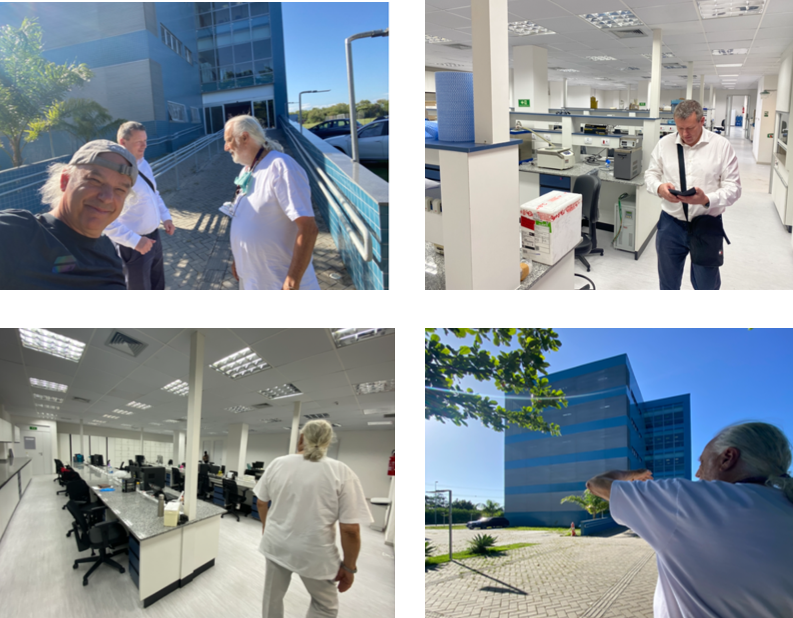The Cancer Moonshot Lund Center is Collaborating with the Following Research Organizations:
- National Institute of Health (NIH), US
- New York University (NYU), Biochemistry and Molecular Pharmacology, US
- Harvard and Mass General Hospital, Boston, US
- Semenov Lab of Massachusetts General Hospital, Harvard Medical School, US
- Federal University of Rio de Janeiro, Institute of Chemistry, Rio de Janeiro, Brazil
- University of Groningen, Netherlands
- National Koranyi Institute of Pulmonology, Budapest, Hungary
- Semmelweis Dermatology/Oncology, Budapest, Hungary
- Semmelweis Pathology, Budapest, Hungary
- Medical University Hospital Szeged Dermatology/Oncology/Pathology, Szeged, Hungary
- Department of Thoracic Surgery, Comprehensive Cancer Center, Medical University of Vienna, Vienna, Austria
- St Marianna University School of Medicine, Kanagawa, Japan
- Yonsei University, Chemical Genomics, Seoul, Republic of Korea
- Prof. Sergio Encarnación-Guevara at the National Autonomous University of Mexico, Mexico

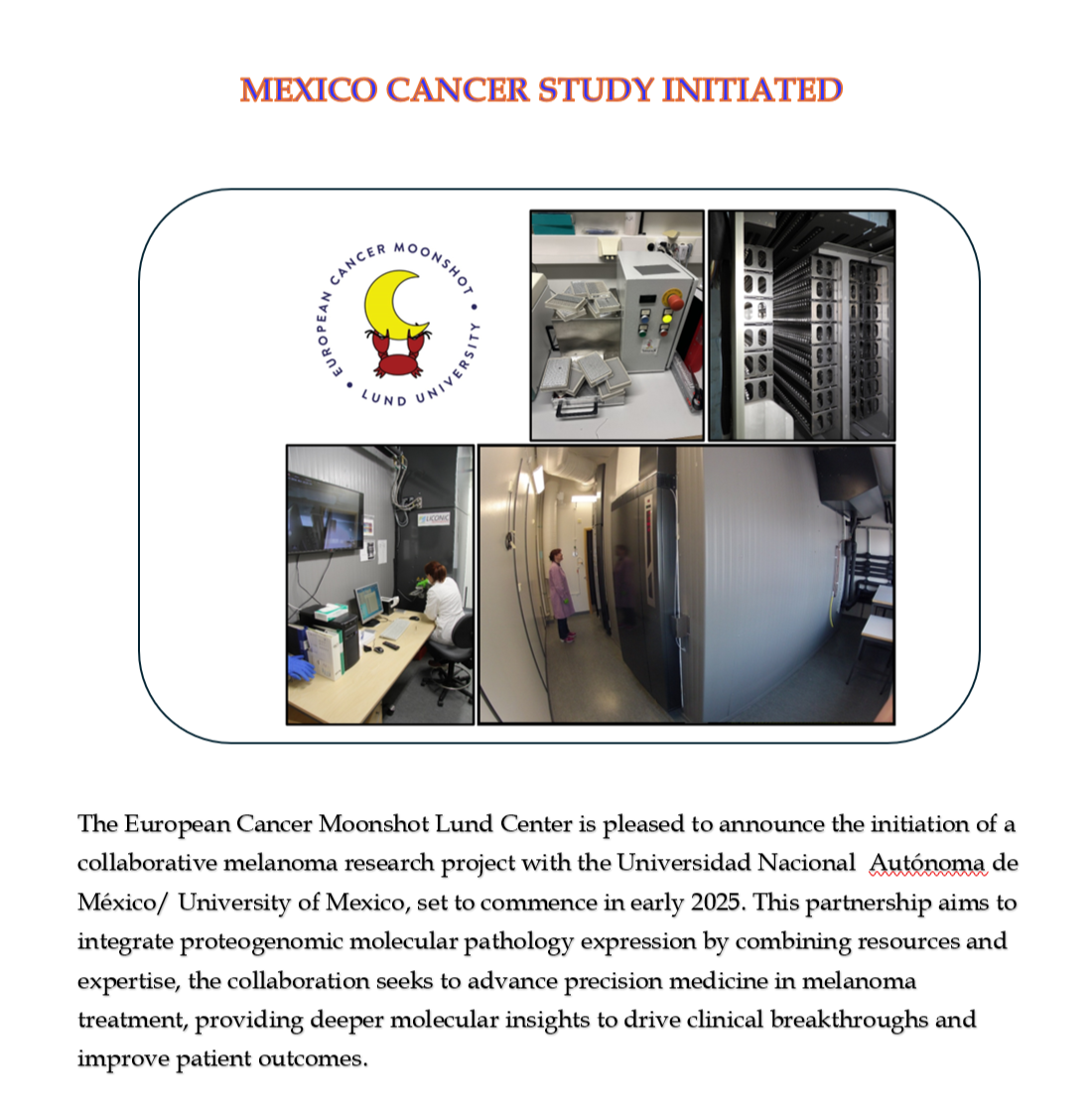
For over 14 years I am coming to Lund University to see, discuss and (where possible) support the biobank and cancer research initiatives. Yesterday, I had the opportunity to see the latest developments with the Cancer Moonshot Lund activities together with my colleague Scott T. Snyder. Truly inspiring so what is achieved and what is still planned for the period ahead to make an impact for those effected by melanoma cancer.
Thanks for György Marko-Varga and Jeovanis Gil Valdes for showing us around and look forward to keep working together. (Erik Steinfelder, 26th August, 2024)
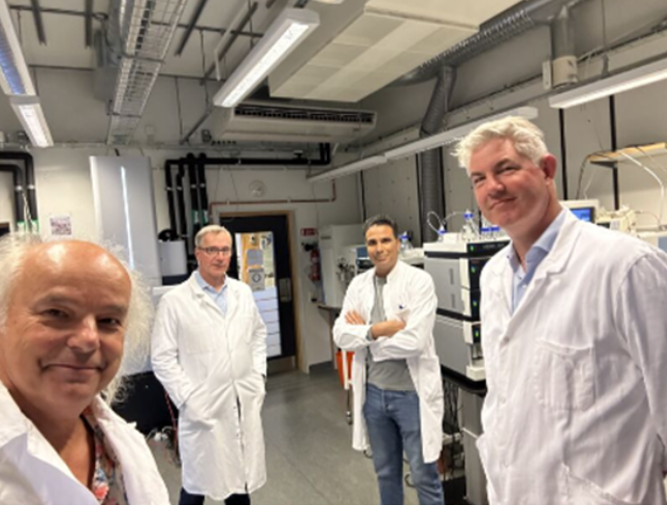
Research stay at Lund University –
European Cancer Moonshot Center, within our EU Lung Cancer project
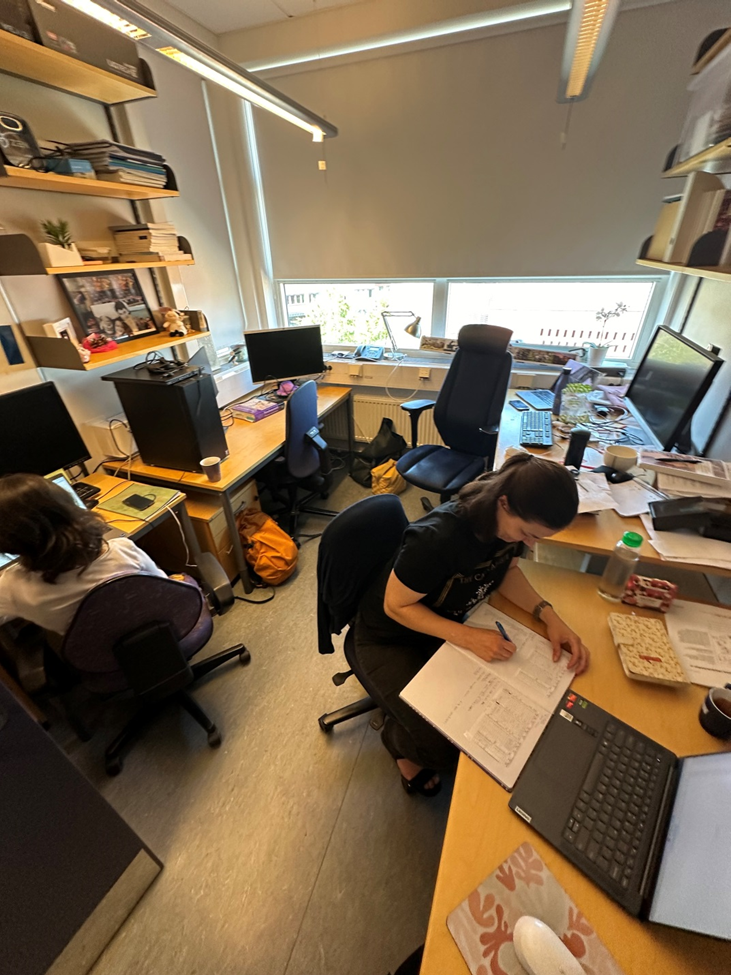

Central laboratory – clinical chemistry and pathology Malmö and oncology/radiology units in Lund/Malmö hospitals, where we collaborate.
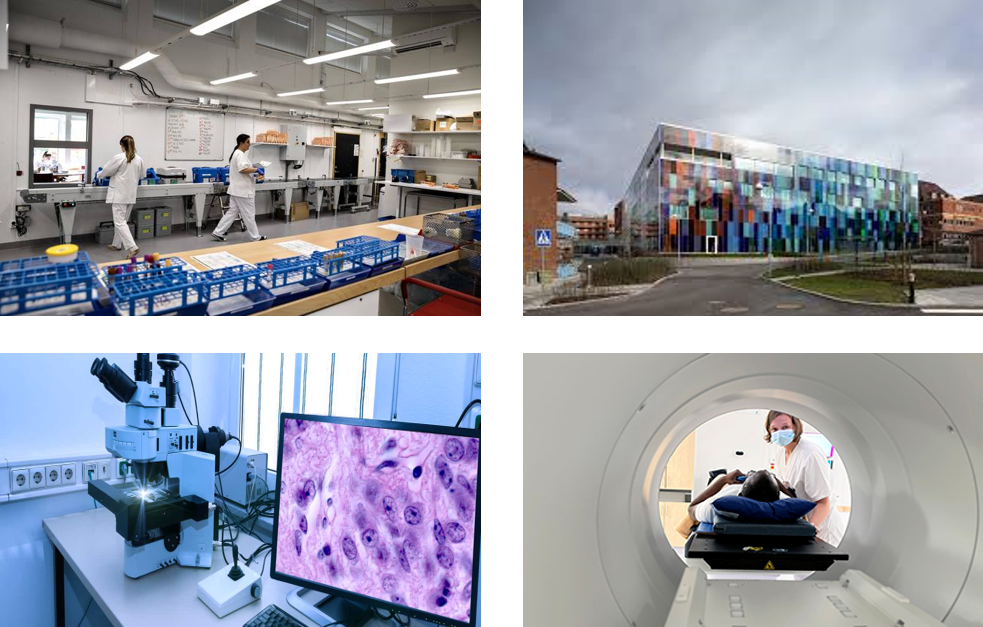
Collaboration with Semmelweis University, Budapest, Hungary
We have been working out and discussing the disposition of patient recruitments and the change in diagnosis of the Melanoma patients and the new classifications that was introduced by the World Health Organization (WHO).

The Brazilian group has expanded into a new Medical research center with the new mass spectrometry laboratories, dedicated to research developments focusing on disease areas.
